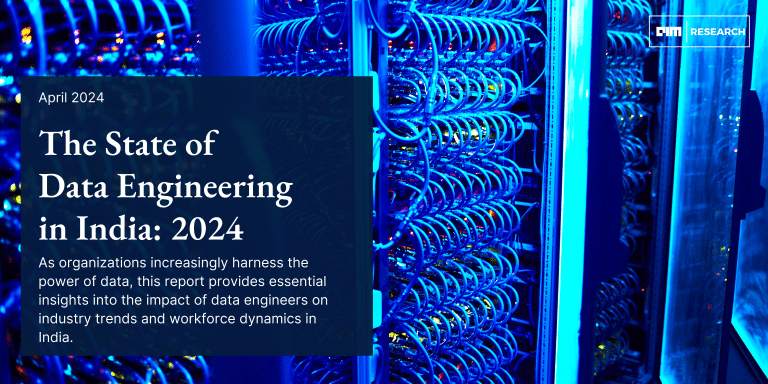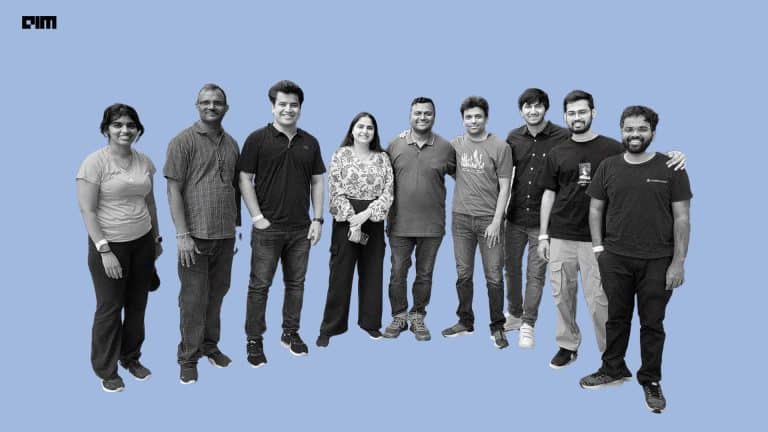The year 2020 was full of unexpected challenges. Having said that, it also served as a unique opportunity to leverage technology on multiple fronts. From adopting it in various industries such as retail, eCommerce and others, to adopting it to ensure the safety of employees in work from home scenarios, and improving consumer experiences, the industry went through various digital touchpoints. Adoption of data, analytics, AI, cybersecurity and other new technologies saw an exponential growth to bring about changes to fit into the changing business scenario.
Looking at the previous year, 2021 looks like an opportunity for tech trends to grow to newer arenas. Intelligent machines, hybrid cloud, increased adoption of NLP, and overall an increased focus on data science and AI is going to be the highlights in the coming year. Some of the other trends that may see a rise in the coming year are pragmatic AI, containerisation of analytics and AI, algorithmic differentiation, augmented data management, differential privacy, quantum analytics, among others. Considering these trends, it can be said that data is increasingly becoming a critical part of organisations after the pandemic.
The annual data science and AI trends report by Analytics India Magazine aims to highlight the top trends that will define the industry each year. This report, which has been developed in association with AnalytixLabs, covers the trends that will shape the year 2021. AnalytixLabs is a leading Applied AI & Data Science training institute in India. These trends are a culmination of popular industry opinions.
Check out previous years data science and AI trends here: 2020 | 2019

1. Cloud Will Back Analytics Deployments

“Cloud tech and edge computing will be central to all CIOs’ strategy as they gear up to manage the business team’s demand for increased agility and near real-time response. Cloud AI engineers who can deploy AI models at scale on the cloud and integrate them with IT systems will see significant demand.”
— Srikanth Velamakanni, Co-founder, Group Chief Executive & Vice-Chairman, Fractal Analytics

“To enable a robust remote workforce, organisations will require the agility to adopt new technology. Building new IT infrastructure on top of legacy systems within data centres is no longer the solution. In this era, clouds will lead the way. As such, it is paramount that security remains at the core of this new technology adoption amidst a new wave of remote workers.”
— Rohit Sawhney, Systems Engineering Manager, Juniper Networks India

“In the coming days, analytics will move to the cloud. While non-critical and departmental analytics have moved to the cloud, current investments will surely accelerate making cloud as the mainstay. This will be facilitated by on-demand compute, server-less analytics, elastic separation of compute. “
— Muraleedhar Ramapai, Executive Director, Maveric Systems

“By 2022, cloud services will be essential for 90% of data and analytics innovation. Data and analytics leaders need to prioritise workloads that can exploit cloud capabilities and focus on cost optimisation and other benefits such as change and innovation acceleration when moving to the cloud.”
— Nishant Rathi, CEO and Founder of NeoSOFT Technologies

“The use of cloud technology for analytics rather than transactional purposes only will gain currency. The year 2021 will witness the reconfiguring of the cloud by scaling up memory and improving the network bandwidth to facilitate real-time analytics. The deployment of cloud-based AI is expected to increase 5x between 2019 and 2023.”
— Rohit Manglik, Founder & CEO, EduGorilla

“The need for an agile cloud ecosystem has become evident with the pandemic. A hybrid cloud enables companies to achieve superior adaptability during unprecedented events. It creates a confluence of private and public clouds via proprietary software to facilitate seamless interactions between different services. This year, we observed multiple large public cloud providers developing tools to drive seamless connectivity between on-premises servers and the cloud infrastructure. The reason why a hybrid cloud is more powerful is that it gives businesses enhanced control over their data while also making their operations more flexible.”
— Suhale Kapoor, EVP and Co-Founder, Absolutdata

“Continuing the momentum from 2020, we will witness an increased momentum towards the adoption of hybrid cloud services. While most organisations have adopted the new normal of working remotely, there will be an uptake in the adoption of virtual office solutions and virtual cloud recordings for conferences to enhance real-time engagement. With the kind of data deluge that enterprises have witnessed in 2020 and will continue to do so in 2021, adoption of a hybrid cloud model for smooth orchestration of data management policy from the edge to the cloud will be one of the main agenda of decision-makers while going into 2021.”
— Ranga Jagannath, Director, Agora

“The technology of hybrid cloud data warehouses should see the light of the day in 2021. Organisations storing their data into multiple warehouses by different cloud providers based on the specific use cases, with the ability to cross-query, join and analyse the data in a single, optimised interface resulting in cost-and-time-efficient analysis, will become popular. “
— Ankur Sharma, Head of Analytics, Instamojo

“Cloud adoption has increased multifold. The Indian traditional sectors like healthcare, manufacturing, education, etc., are also evaluating different technologies like AI, ML, for achieving operational efficiency. As consumption increases, production increases, lowering cloud subscription cost i.e. economies of scale. This would benefit start-ups/ industries to expand their IT sprawl more efficiently.”
— Sachin Waingankar, Head of Cloud, Web Werks Data Centers
2. Automation And Intelligent Machines Will Drive Critical Roles

“Technologies such as Robotic Process Automation (RPA) will help automate low-value efforts, including data collection and processing, providing a quicker way of using data to focus on high-value activities such as data analysis and modelling. Data points such as GST, POS terminals may be sourced to provide insight and opportunities to fintech organisations and help in analysing risk, fraud detection, thus creating tailored made offers. “
— Marion Roussel, Head – Decision Sciences at Capital Float

“Business Process Automation has got a tremendous impetus and top-most priority in any CXO’s list, given the unique circumstances we went through in 2020. Intelligent automation is about augmenting this with intelligent decision making and filling the crucial gaps for some hard to replace HIL (Human in the loop) based systems. Intelligent automation adoption will see cross-connecting advancements of different technologies like virtual conversation agents, NLP based entity engines, computer vision with edge AI, and large scale bot orchestrations.”
— Biswajit Biswas – Chief Data Scientist, Tata Elxsi

“Our research shows that 70.5% organisations cite improved CX as the top factor driving their digital transformation. We foresee greater adoption of chatbots and AI-driven natural language processing bots which will increasingly undertake businesses’ early-stage interactions with customers. Automation will also play a critical role in employee experience initiatives. Here, we can expect to see advances in and adoption of robotic process automation, machine learning and AI.”
— Kaustubh Chandra- Director – Marketing & Digital Sales Group, NTT Ltd. in India

“Automation will be inevitable in 2021. As more engineering organisations migrate their infrastructure to the cloud and adopt a microservices architecture, the next challenge they’ll face is figuring out how to manage and keep pace with an unwieldy, distributed system. Whereas automation has been seen as an emerging tool in the past, it will become essential for survival in 2021.”
— Mike Tria, Head of Platform, Atlassian

“Smarter AI will be the trend. I think that humans, at their basic cell, are lazy. We want to make our lives simpler and faster. And AI is going to be the major catalyst for that. We are already using AI to do so many things at the tip of our fingers and we will be doing so much more. AI will automate the process of screening candidates, interacting with employees on the company portal and guiding them to FAQ answers, streamline data, and present only useful information to the users, and so much more.”
— Ankit Kashyap, Co-Founder, Vasitum

“Digital products are exploding all around us. Yet many of them are quite static, non-personalised and non-intelligent. AI and analytics-enabled intelligence that is embedded in these products will need to become aforethought by including them in the product architecture and MVP1 planning and not relegated to subsequent release as an afterthought.”
— Nitin Sareen, Consumer Analytics Head, Wells Fargo

“Data maintenance and governance are key pieces of a company’s data architecture. These are automation tools that help data scientists speed up the process of untangling from data issues. Recently, there has been a rise in machine learning and artificial intelligence that has allowed for the creation of new data science tools that automate a variety of repetitive tasks. Machine Learning automation courses such as PyTorch (+542%), TensorFlow (+458%) and OpenCV (+300%) have seen an enormous spike.”
— Irwin Anand, MD, Udemy India
3. NLP Models Will Be Bigger Than Ever And Power Human-Machine Conversations

“The year 2021 will be known for artificial intelligence, Natural Language Processing and predictive analytics as prominent technology trends. NLP can be implemented in various verticals from retail, HR tech, to healthcare to BFSI, and much more. It can also improve the customer and employee experiences, reduce the redundant activities for the people and help to focus on value-added activities.”
— Prasad Rajappan, Founder & CEO, ZingHR

“AI and ML tools and capabilities will increasingly be leveraged in various stages of the analytics process – from quality control of data to identify incorrect data and catch outliers during the data capture process. It will help build more robust marketing analytics models faster, automate reporting and insight generation using Natural Language Processing (NLP) and Natural Language Generation (NLG), among others. All of this will eventually translate into quicker turnaround times, lower costs and sharper insights for clients.”
— Vijay Ramaswamy, Partner and Co-Founder, Analytic Edge

“With bigger than ever state-of-the-art language models creating a huge buzz with their releases in 2020, NLP has now gained more attention. Many more retail brands shall now tend to use AI-based market and consumer insights in the company’s decision making and marketing strategies. They will adopt Conversational AI systems to generate consumer provided first-touch data to know what their consumers need and more importantly ‘why’!”
— Dinesh Sharma, Co-Founder & CTO, AskSid

“Cognitive bots will become the ‘de facto’ virtual assistant of future knowledge workers. What makes this technology powerful is that users can ask questions in natural language and expect a meaningful response from the AI engine. AI algorithms in 2021 will increasingly become popular in answering standard FAQs as well as help lawyers, doctors, loan officers with all kinds of answers.”
— Narendran Thillaisthanam, VP – Emerging Technologies, Vuram

“Multimodal integration of visual and language processing can solve a number of complex problems in multiple fields. Capabilities like video KYC, fraud & forgery detection and Document AI will be strengthened to their optimum by Deep Vision & Language Integration.”
— Virendra Kumar Pal Chief Innovation & Analytics Officer, SMEcorner
4. Emerging Tech Will Fill Essential Gaps Across Non-Traditional Domains

“So far, AI solutions were able to address problems within limited scope/ scenarios /fluctuations in demand. The year 2020 has paved a path to develop AI solutions that will be flexible yet robust to account for unforeseen circumstances/demand and supply. Thus, the year 2021 will look for holistic solutions to incorporate any odds that may occur. The biggest challenge is to develop solutions with very limited or no data. This would in-turn call in for Innovative Data Scientists who are great at the fundamentals and can give a probabilistic view to the decision, as the scenarios or cases considered will be high. Solving such large-scale problems would take much longer time, expecting advancement in infrastructure and Big Data Architects to design more effectively.”
— Dr Sheela Siddappa, Chief Advisor – Data Science, Bosch Engineering & Business Solutions

“Data science is no more a support function but a requirement across functions and domains. Data scientists have always been in high demand, but Data science as a skill set is slowly becoming a preferred requirement for business leaders. In order to bring the transformational change and make data-driven decision making a habit, CEOs are looking for business leaders with data science skill sets.”
— Saurabh Awasthi, Data Scientist, Mondelēz International

“To support demand shifts from POCs to scalable models, the AI/ML community will dedicate efforts on full technology stack enabled ML pipelines for continuous monitoring and re-training of AI/ML models in production environments. Emerging roles such as ML Engineers, Citizen Data Scientists and Decision Scientists will be critical to achieving this endeavour.”
— Sreekanth Menon, VP – Data Science, Genpact

“Now that organisations realise the effectiveness of analytics platforms in measuring productivity, its usage is expected to penetrate not just to IT but other departments that have traditionally not relied on analytics applications. For example, data from HR applications combined with employee performance metrics, can be used to measure the influence of employee welfare initiatives on employee productivity. This focus on analytics brings an exciting dynamic to the way organisations work and also introduces a set of challenges in data governance and maintenance. “
— Rakesh Jayaprakash, Product Manager, ManageEngine

“With technology taking over the work-ecosystem in 2020, there has been a steep demand for a future-forward subject like Data Science within the country and beyond. The said vertical has been evolving more than ever and has been rated as one of the most exciting career paths of all time. Such evolving circumstances have led to a wide range of new-age job roles across the board.”
— Arjun Mohan, CEO – India, upGrad

“Analytics will no longer be restricted to traditional functions, i.e., banking, retail, transport, but become integral to everyday operations. Data literacy, i.e. understanding and quantifying performance using data will be indispensable to all roles/jobs. Data-oriented training and upskilling will become crucial, and leading indicators will replace lagging indicators to facilitate informed proactive decision-making.”
— Atishay Jand, Delivery Manager, TheMathCompany

“Location intelligence will get a lot more prominence. COVID-19 has fast-forwarded the digital penetration, and now customisation of products to specific geographies is going to be much more efficient based on data.”
— Shantanu Bhattacharya, Chief Data Scientist, Locus

“There will be special requirements for AI solution providers in healthcare. All procedures used to maintain health, diagnose, and treat diseases place the highest demands on trust, integrity, reported benefits, and associated costs. These demands will also apply to AI in terms of capabilities, quality assurance methods, clinical validation, requirements for the data used, the avoidance of bias, and clear measurement for performance assessment.”
— Dileep Mangsuli, Executive Director, Siemens Healthineers

“If 2020 was the year of COVID, 2021 will be the year of the vaccine. Analytics will not only play a critical role in clinical trials and speeding the vaccine development process but will also be vital for planning rollout and tracking distribution, side effects and overall efficacy.”
— Kunal Aman, Head Marketing- SAS India

“The pandemic has pushed everyone to embrace remote communication. This trend has been witnessed in healthcare too, which has seen a rise in Telemedicine. The rise is expected to continue in 2021. AI can help in the area of telemedicine in various ways such as virtual assistants providing reminders for medication, answering health queries, routine checks, remote patient monitoring and management, and more.”
— Arpita Sur, Assistant Vice President at Ugam, a Merkle Company

“Creating successful AI-based systems require model lifecycle management, which includes training, deploying, monitoring and updating the model for the system. To achieve this, in 2021, engineers will augment their workflows to include development of best practices and production pipelines with IT. These will support AI-enabled systems in real-world environments.”
— Prashant Rao, Senior Manager, Mathworks
5. AI In Cybersecurity Will Address Major Security Loopholes

“For several years now, cybersecurity has been one area where investment and budget growth are constant. The security team has positioned successfully with insights and future trends, and the business sees strength in security as both a regulatory need and a competitive advantage. However, in 2020 we saw a change: investment had to be brought forward to support remote working, and a rapid move into cloud-based software services, all driven by the pandemic. Now, 2021 may see reduced spending on security, and an increased need to demonstrate fast value from previous security investments.”
— Laurence Pitt, Global Security Strategy Director, Juniper Networks

“Geo-political and economic realignment of the global stage could result in more intense cyber warfare. While cyber-attacks would become more severe and frequent, resulting in massive data thefts and service outages; cybersecurity would need to play a fast-paced catch-up game. AI and ML would play a critical role to detect such attacks at early stages and prevent them from spreading virally. Fire Sale (of Die Hard) scale of attacks can soon be a reality.”
— Gaurav Kumar, Founder and Chief Technology Officer (CTO), Valyu.AI

“In the face of security risks from an increasingly remote workforce, organisations will increase investment into access security, analytics, and automation to protect sensitive information. Failing to cover end devices with rigorous security policies has proven to be costly, and many organisations have paid the price for that this year. As the attack surface continues to expand in 2021, we can expect more organisations to keep a tighter rein on intra- and inter-organisational data flow, with defence measures encompassing context-based access controls, geofencing of employee remote work location, and encryption. Security analytics and automation will become mainstream to help organisations detect anomalies in user behaviour and deploy quick remediation to block malicious activities.”
— Stephen McNulty, President, Asia Pacific at Micro Focus

“2020 was a year of unprecedented challenge for IT security teams. Technology is changing quickly, and an organisation’s attack surface is constantly morphing. They have tools for detecting anomalies — and detect so many that they’re overwhelmed. Pandemic workforce disruption will drive a greater focus on endpoint security and the zero trust model. Faster-moving digital transformation will include more artificial intelligence in the SOC and much more.”
— Jyoti Prakash, Regional Sales Director, India & Saarc Countries, Splunk
6. Businesses Will See Real-Time Actionable Data Consumption

“Reports are delivered real-time. The mobile app, tablet, web or through PA system announcements, data consumption is multi-channel and personalised. The output of algorithms is no longer fed into age-old dashboards to generate reports. It is increasingly delivered through a channel that makes the data actionable. The growth of NLP, AR and VR have transformed data consumption.”
— Kunal Kislay, Co-Founder and CEO, Integration Wizards Solutions

“In spite of recent advancements, much of the data gathered by businesses remains under-analysed, unstructured and unmanageable in volume. Actionable data will be the name of the game for companies that want to gain crucial competitive advantages, and to obtain actionable data, Data Scientists and Analysts will be in high demand.”
— Nikhil Barshikar, Founder, Imarticus Learning

“As we all get overwhelmed with reports, it is very hard to figure out how to deal with these reports. Significant bandwidth has to be spent in gathering insights from these reports and datasets. We will see an increasing number of solutions powered by ML, which will be able to ingest these reports/datasets and autonomously generate insights in natural language from them. These insights could then be plugged into a low aperture device like Alexa to be read out to the users.”
— Sameer Dixit, General Manager, Data, Analytics, AI and ML at Persistent Systems

“Mundane as it may sound, the discipline of data operations and all that it entails will be key to the efficient organization along with use of data. We’ll see an agile approach enabling a technological and cultural change that drives enhanced collaboration and automation. A successful build-out of data structures, with enhanced layers of protection, will become the mainstay of a successful analytics organization enabling reduced time to insights and decisioning.”
— Nidhi Pratapneni, Senior Vice President, Product, Analytics & Modelling; Marketing; Public Affairs, Wells Fargo
7. Customers Will Be The Priority

“In 2020, bots are widely being deployed in customer service apps, but will soon spread to sales management. As we approach 2021, customers will increasingly demand companies to deliver seamlessly. Despite the pandemic, customers still want to receive the same, in-store, white-glove experience as their online experiences. Companies will use AI to deliver those experiences customers want. We expect to see more virtual try-on, smarter delivery and pickup options and interactive virtual event marketing. “
— Deepak Pargaonkar, VP – Solution Engineering, Salesforce India

“The flexibility of choice provided to the end-consumer is going to emerge as an essential feature. Every conversation, every interaction point could be seen to carry options. Emerging out of this theme would be the choice of response channel, transaction channel, product forms, sales force flexibility. Once a consumer makes a choice, effective delivery of that chosen option will be the game-changer.”
— Moumita Sarker, Vice President – Client Delivery, Cartesian Consulting

“We predict most of the new business systems will be using continuous intelligence in coming years. Industries could use continuous intelligence to monitor and optimise scheduling decisions and also provide more effective customer support.”
— Manish Jha, CIO, Addverb Technologies

“E-commerce companies are increasingly integrating AI in various applications to gain a competitive advantage in the market. The adoption of AI-powered tools helps them to analyse the catalogue in real-time to serve customers with similar and relevant products. This improves both sales and customer satisfaction. Therefore, the increasing application areas of AI in e-commerce is expected to boost the growth of the market during the forecast period.”
— Zabi Ulla, Sr. Director – Products & Solution, Course5 Intelligence
8. Federated Learning & Counterfactuals Will Be The Game Changer

“As the competition gets tighter and fiercer, product companies have to be extremely innovative in winning the trust of the customer and digital experience is the key to that. One way for data science to pave the way for this aspect will be tapping the Federated Learning Model and algorithms to capture Mobile behaviour of customers. This will enable the creation of personalised recommendations by deploying learning models on the phone rather than on the cloud. It will ensure right product sensitivity and relevance at the right time, resulting in a win-win situation for both business and customer.”
— Radhakrishna Venketeshwaran, Head of SDC & Vice President – Product & Engineering, Blackhawk Network India

“Federated Learning is an improved model in machine learning, enabling data scientists to perform ML on a decentralised data and then aggregate (federate) the learning in a central point for further learning and application. This trend will catch a rage in the FinTech sphere as it would allow banks to develop tailor-made solutions to a certain set of customers, by practising ML on their premises and then aggregate the learning to develop plausible solutions. About the fashion in which data is protected in FL, and when it’s coupled with differential privacy controls, it will only gain popularity in multiple folds in years to come, and not just in 2021.”
— Satheesh Kumar V, Director – Technology, Synechron

“As it currently stands, many AI models’ decisions are solely made based on correlation, much like the decision-making of a three-year-old child. However, these models are progressing to include causal techniques and counterfactuals. As an example, many banks use AI-models to make lending decisions. One bank’s AI model may reject a loan application due to a low credit score. However, a better model would account for causal techniques and also enable counterfactual inference over the loan applicant’s data points. In essence, the model will show what other variables the applicant can include to receive the loan. Additionally, causation and counterfactuals help to prevent preconceived biases from arising from the datasets. The incorporation of counterfactuals will become increasingly prevalent in algorithmic decision-making.”
— Ramprakash Ramamoorthy, Product Manager, Zoho & ManageEngine Labs
9. AIOps, MLOps & ITOps Will Streamline Processes

“MLOps (Machine Learning + IT Operations) focuses on automating and productising machine learning algorithms through enhanced collaboration and communication between data scientists and information technology professionals. MLOps empowers data scientists and app developers to help bring ML models to production faster and at scale. The objective is to accelerate the life cycle of machine learning development, deployment and productionising of ML algorithms. It will enable organisations to improve the quality & reliability of the machine learning solutions in production and helps automate, scale, and monitor them.”
— Dr Jai Ganesh, Senior Vice President & Head, Mphasis NEXT Labs

“Next year, AIOps will go from theory to practice for many organisations. With the increase of remote workers and the home becoming the new micro branch, AI will become table stakes for delivering a great client to cloud user experience from client to cloud while controlling IT support costs for remote employees. IT teams will need to embrace AIOps to scale and automate their operations. AIOps cloud SaaS will turn the customer support paradigm upside down. Instead of users submitting tickets to IT, AI will proactively identify users with connectivity or experience issues and will either resolve (the self-driving network) or will open a ticket with suggested remediation actions for IT.”
— Pankaj Kitchlu, Systems Engineering Director (India-SAARC), Juniper Networks

“In the next few years, industry estimates indicate that over 55% of data will be created outside data centres or cloud environments. This will be used in tandem with new applications at the edge to enhance operational efficiencies providing impetus to enterprises. AIOps will be the key driver of this forward momentum. It is the application of artificial intelligence to IT operations which helps accelerate data-driven decision making. The AIOPS approach will become crucial for managing and monitoring IT environments that are complex, hybrid and span distributed regions. It also helps in avoiding Imminent Service Disruptions while facilitating Root Cause Discovery.”
— V Satish Kumar, CEO, EverestIMS Technologies

“AIOps helps automate IT operations by combining big data and machine learning. As businesses rethink the new normal, we’ll witness the rise of AIOps, especially for the prevention of cyber-crime and automatic resolution of IT problems. In 2021, this will be ever more critical as a majority of the workforce continues to work from home using multiple, and often unsecured devices.”
— Arpita Sur, Assistant Vice President at Ugam, a Merkle Company
10. Policy & Regulatory Interventions Will Define Production Of ML Models

“In the next five years, increased data and privacy regulation will have a big impact on the way we design AI/ML models. As a result, investment in data management is going to be critical in determining the success of AI systems. Companies that have better data management frameworks, platforms and systems will win in building effective AI tools.”
— Sri Viswanath, CTO, Atlassian

“We have directly moved from an era of human-led data decisions to machine-led data decisions. With the increasing focus on privacy and data protection from regulatory bodies, there is a need to have machine led AI to be guided by human governance. We would be in the coming years going to see the increase of more governance in the AI solutions. The next phase would be machine-led and human-guided AI solutions. Algorithms would no doubt be able to build patterns, but it will also get governed by human empathy. Possibly we could call this “Sensible AI.”
— Mathangi Sri, Head of Data – GoFood, GoJek

“The pandemic has had an unprecedented impact on adoption automation and industry 4.0 technologies with sectors like HealthTech and EdTech being revolutionised like never before. AI proctored exams are a commonality today. The Government has already sought comments on the Indian AI stack. While the Personal Data Protection Bill, 2019 is still pending before the Joint Parliamentary Committee, policy and regulatory interventions are expected to minimise the friction as AI interacts with the fundamental right to data and informational privacy along with that of free speech and non-discrimination. This will be complemented with more start-ups providing innovative solutions to secure user rights in the digital space.”
— Pranav Bhaskar Tiwari, Programme Manager, The Dialogue

“As the dependence on AI systems increases, the blurring of boundaries between data governance and data privacy will create ethical dilemmas. Responsible AI will be a reigning theme for years to come, as enterprises and regulatory services look for the elusive balance in managing inherent biases that creep into algorithms and impute human behaviour. “
— Anand Sri Ganesh, Chief Digital Officer, BRIDGEi2i Analytics Solutions
Read the complete report here:



















































































